
South Goa District Planning Authority announced revised CRZ guidelines finalization by November 15, 2025, after stakeholder talks. These changes tackle Category B construction issues, poised to revive over 1,200 stalled beachfront homes in Colva, Benaulim, and Mobor. Developers like Puravankara and Oberoi Realty eye quick restarts, boosting coastal real estate momentum amid balanced eco-rules.

In North Goa's coastal real estate, energy-efficient designs and eco-friendly builds have transformed from premium add-ons to core standards. Developers now embed sustainability in projects to match buyer demands and safeguard the fragile ecosystem amid strict regulations and rising green preferences.

GIFT City in Gandhinagar surges with IBM's 60,000 sq. ft. facility, Capgemini's 45,000 sq. ft. space, and Google's investor pursuits. This boom sparks 4,500 residential units under construction, green parks, malls, and India's first IGBC Platinum-rated greenfield smart city, boosting sustainable living and business appeal.

Micro Mitti has introduced India's pioneering township in Indore, emphasising air quality with specialised materials and purification systems. Launched on October 12, 2025, this project advances sustainable living in Central India by prioritising resident health through innovative environmental features.

Marian Downtown, proposed by Marian Projects, seeks environmental clearance for a luxury residential tower in Mangalore. Set for prime urban development, it promises modern amenities and strategic connectivity, reinforcing the city's real estate growth trajectory.

Rohan Corporation announces 15 mega projects launching in Mangalore for 2025, featuring Rohan City and Rohan Marina One. These developments prioritize smart infrastructure, sustainable urban planning, and tech-integrated living while targeting Karnataka's growing real estate market.
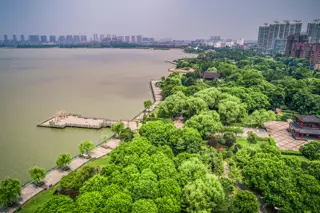
The Odisha Developers' Federation (ODFED) launched September 12, 2025, in Bhubaneswar to drive sustainable practices, enhance transparency, and strengthen collaboration between developers, government agencies, and ORERA for ethical growth in Odisha's property sector.

CREDAI Trichy urges state government to expedite Master Plan 2041 release, citing delays that hinder new project planning as infrastructure developments boost property demand.

Bihar's 4-month sand mining ban (June–Oct 2025) aims to protect river ecosystems while managing construction supply through pre-stocked reserves and regulated distribution points. Developers must adapt to ensure project continuity amid enhanced environmental regulations.

A new 140-kilometer Outer Ring Road is set to revitalize Patna's infrastructure, mirroring Delhi's model. This project aims to reduce traffic congestion and enhance regional development across Patna, Vaishali, and Saran.
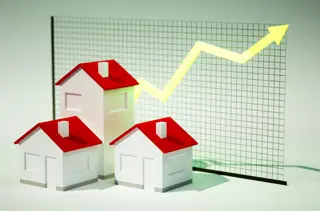
VGR Real Estate launches premium and affordable residential projects in Raipur targeting mid-income families and investors, featuring eco-friendly designs, smart infrastructure integration, and proximity to expanding development zones like Naya Raipur.
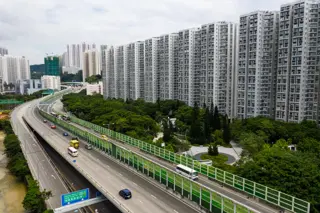
New Chandigarh’s 2025 infrastructure projects, including PR 4 Road upgrades and railway station modernization, enhance connectivity to Chandigarh, driving commercial and residential investment.

Chennai's luxury real estate market experiences record demand as premium housing purchases surge, driven by economic confidence, lifestyle aspirations, and technological advancements.
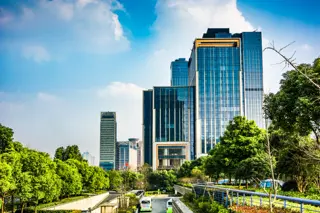
Raipur Development Authority introduces new sustainability regulations requiring energy-efficient designs, green spaces, and resource-efficient systems for buildings exceeding 20,000 sq ft. This move aims to align regional development with India's growing green building landscape, impacting future real estate projects extensively.

RERA Delhi introduces mandatory energy ratings for new residential projects to promote sustainability, reduce carbon footprint, and enhance transparency.

Dehradun’s real estate surge is driving ecological damage, loss of green spaces, and rising temperatures. Experts call for sustainable urban planning, heritage conservation, and climate resilience amid rapid development.
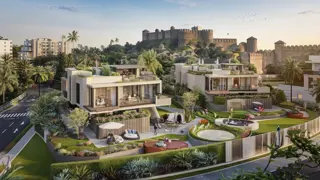
Navi Mumbai's first smart city project, a 100-acre development featuring AI-powered homes and sustainable infrastructure, draws significant investor interest during pre-launch bookings.
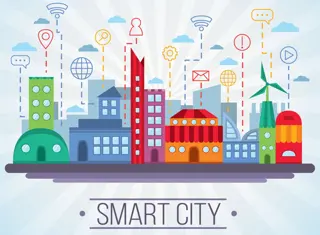
Bhubaneswar Smart City Limited (BSCL) initiates final-phase development, prioritizing advanced infrastructure, housing rehabilitation, and smart governance to solidify its status as India’s model smart city by 2026.
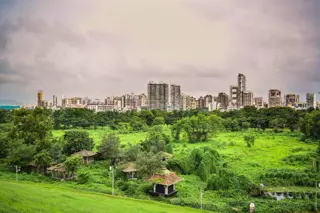
Kerala introduces sweeping changes to building regulations, extending permits to 15 years, easing parking rules, and enabling self-permits for homes, fostering sustainable urban development and vertical habitats to accommodate growing populations.
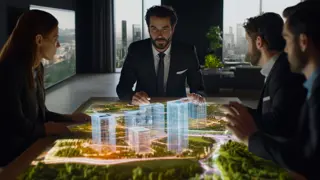
CREDAI Mangalore and SI-8 form a partnership to transform real estate through innovation and sustainability, setting new standards in green building and urban development.
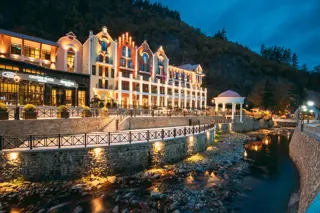
Victorian Corporation’s Eko-Privilege Resort launch signals a sustainable luxury shift in Nainital, appealing to eco-conscious investors with cottages and plotted sites strengthening premium real estate demand.
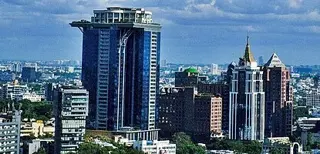
Haryana's real estate regulator introduces mandatory green certification for residential projects, aiming to promote energy-efficient practices and eco-friendly construction in Gurgaon.

News18 Lokmat's conclave in Navi Mumbai assembled policymakers and industry leaders to discuss emerging real estate developments, infrastructure initiatives, and regulatory challenges, underscoring the region's market potential through expert-led panels.
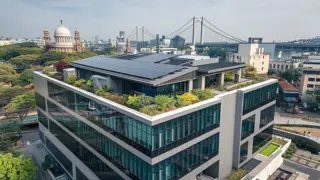
Kolkata’s real estate sector embraces sustainable practices driven by environmental concerns and long-term cost savings, with energy-efficient systems and green certifications gaining prominence.

Contrary to concerns, HYDRAA has boosted Hyderabad's real estate growth, with notable improvements in residential and commercial activities between June and November 2024.